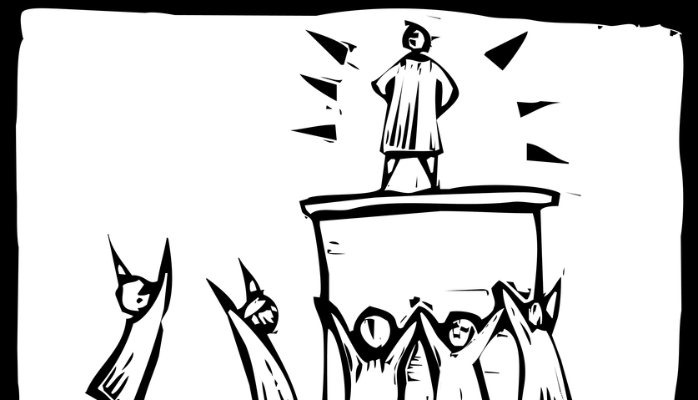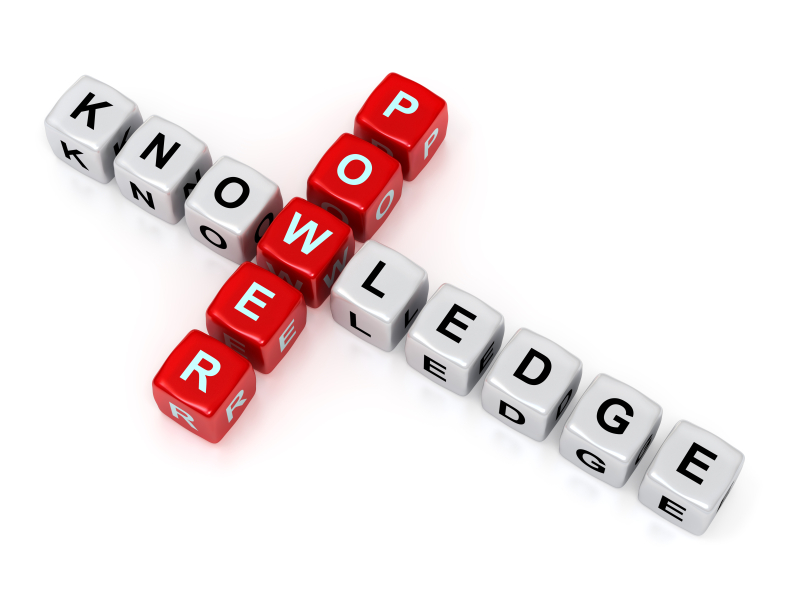Two Paths and the Knowledge for a Blessed Life

If you happen to have studied the world of business and marketing, there’s this famous “case study” given, about the most successful sales letter of all time.
It is a marketing campaign, which ran between 1975 to 2003, and was responsible for over $2 billion in revenue for Wall Street Journal, a US business-focused newspaper. They used to post this short letter in people’s mailboxes, and it converted like crazy.
Thousands upon thousands bought a subscription to WSJ based upon this letter, and it contributed in making WSJ be the largest newspaper in the US by circulation.
Over this period, they had in fact had many, many other writers who tried to beat the conversion ratio of subscribers that this advertisement pulled in, but nothing worked as efficiently as what you’re about to read.
Hence why it is known as “the greatest sale letter” and here’s how it starts:
“Dear Reader:
On a beautiful late spring afternoon, twenty-five years ago, two young men graduated from the same college. They were very much alike, these two young men. Both had been better than average students, both were personable and both – as young college graduates are – were filled with ambitious dreams for the future.
Recently, these two men returned to college for their 25th reunion.
They were still very much alike. Both were happily married. Both had three children. And both, it turned out, had gone to work for the same Midwestern manufacturing company after graduation, and were still there.
But there was a difference. One of the men was manager of a small department of that company. The other was its president.
What Made The Difference
Have you ever wondered, as I have, what makes this kind of difference in people’s lives? It isn’t always a native intelligence or talent or dedication. It isn’t that one person wants success and the other doesn’t.
The difference lies in what each person knows and how he or she makes use of that knowledge.
And that is why I am writing to you and to people like you about The Wall Street Journal. For that is the whole purpose of The Journal: To give its readers knowledge – knowledge that they can use in business.”
The letter goes on to then affirm that if you’ll read WSJ, you’ll also be like that successful later man, who had the extra “knowledge edge” over his colleague. For knowledge is power and WSJ will give you that “knowledge advantage” that others don’t have.
Yet the “secret sauce” for why this letter was so successful was not in the follow up text, but right in the opening paragraphs you just read. Would you like to know why this worked so well?
For marketing is not stupid. We live in the age of marketing after all, where we are served as many as 5000 ads in one single day.
When one ad performs so remarkably well, it’s because it understood what makes people tick, better than we often understand ourselves.
So let’s explore then why this letter performed so well. For its undeniable success is based upon a deep insight into human nature. It tapped into a number of psychological levers, which literally made people subscribe…
While there are many things that have made this sales letter so convincing, three powerful ideas I believe account for the majority of its success:
1. The Two Brothers Setup

The first powerful idea is in the structure of the story. It positioned two practically identical characters against one another – two young men graduating from the same college (implying the same amount of innate intelligence), who end up in 25 years, at two fundamentally different life stations – in terms of wealth, status, recognition, power, and by implication, also access to the good pleasures of life…
This setup is almost scientific in nature. We start off with two similar specimens, two related ’causal agents’, and then we observe that in 25 years, they created two different ‘life effects’. The puzzle then being, ‘what made the difference between these two’?
This is a classic setup that’s is present in many of the most influential stories of all time:
‘The Brothers Karamazov’ – which many praise to be one of the greatest literary achievements of all times – is also a comparative between the same genetic stock, ‘the brothers’. Coming from the same family, the brothers live fundamentally different lives based on how they interpreted the world – i.e. one being a sensualist, another an atheist, and another a theist.
‘A Tale of Two Cities’ – the second greatest selling novel of all time by Charles Dickens – also used this comparative structure between the two similar cities of London and Paris, and the effects that these differing cultural ideologies had upon the lives of its characters.
“Ben Hur”, the best-selling novel of the nineteenth century by Lew Wallace, placed Judah Ben-Hur, a wealthy Jewish prince, at odds with his childhood friend, Messalah, a powerful Roman commander. This in turn was made into an epic film production in 1959, and was successfully re-interpreted once more with the film Gladiator in 2000.
This isn’t a new story-telling device by any means. It is in fact, our oldest and most influential story structure in our history, as laid out in the opening biblical stories for instance.
In the book of Genesis, after the fall, the very first story is about the lives of the two brothers Able and Cain. Here are two people of the same genetic stock, with access to the same resources – but one who ends up living a blessed life, and another who ends up being a resentful murderer…
This story is then followed up shortly, by the story of brothers “Isaac and Ishmael” and their two different destinies; which in turn is followed up by the story of Isaac’s sons, brothers Jacob and Esau, who likewise end up having two fundamentally different lives.
Then we have the story of Jacob’s sons, of Joseph and his brothers… where the former ends up as the second most powerful man in Egypt, after having been sold into slavery and left for dead by his very own brothers.
So this story structure has long been ingrained upon our psyche. It is an outstanding educational tool. We can call this the “two brothers setup”, and how it works is that the structure keeps one set of variables as a constant – like where one is born, into what family and with what genetic advantages – and it allows the listener to identify for oneself what is the “other variable” that makes the difference – the ‘key’ to one’s success or failure…
This is powerful because the idea of “brotherhood” keeps the external variables over which we have little control at a constant and as secondary. As such, it allows us to identify for ourselves, what aspect of life do we all have control, if we would live a life heroic.
It allows us to implicitly understand, what can we control, as to change our future destination or “destiny”?
And we care about questions like these, because we as human beings are unlike all other animals. For with all other animals, their genes, instincts and environment, basically dictates their destiny. Animals of the same genetic stock for instance, in the same environment, don’t live remarkably different lives.
If we can use a rough computer metaphor, there seems to be two parts to our being in the world. On one hand we have the hardware unit and the peripherals that it is connected to, which we can roughly represent as the physical body and its extended resources; and then there’s the software and the programmer, representative of the mental dimension and the causal agent.
Animals seem to have an inbuilt software that pretty much dictates, what they will end up doing and how, and have little control as to adjust the script that’s running their existence. They have little awareness of being run by a program, and as far as we know, they have no awareness of themselves as being the ‘programmer’.
But we as human beings, seem to be able to select and chose which software pieces we will use. Most remarkable, we also have a remarkable degree of awareness that we are the programmer and that we have the power to change the script. Stories like these remind us that we have the power to implement and code the very software that leads us to a ‘better place’.
As such, we like to hear comparative stories like these. With this story set up, we can evaluate what are the “winning programs”, so that we may implement them in our lives likewise. We are attentive to pick out what software pieces we could use, as to live a more “blessed life”.
But let’s go deeper than that, and let us observe what’s most remarkably happening in the background, when we hear a story such as the one above – particularly if one was sold onto purchasing a subscription…
2. Living a Blessed Life

The reader can only make sense of this story and become convinced to subscribe to WSJ, unless they implicitly agree to a number of presuppositions:
The first presupposition – and one that we hardly ever notice – is that we are naturally set up to agree that living a “blessed life”, is more preferable than one that is “less so” and that there is a way to having it happen. So in this two brothers story, our consciousness implicitly wants to know what is the “secret sauce” behind what made someone be the president and how one too could have this more blessed life.
Recall how in your mind, when the question was asked earlier, “What made the difference?”, your mind did not think, “Yeah, how did that first man become the manager of a small department?”. Instead, we instinctively ask ourselves, “what made the difference in the later man being a president”?
Regardless of whether you think being a president is of supreme value in life or not, we are all predisposed to value the later brother more, rather than the former. That’s because we implicitly evaluate that all other things being equal, to be a president is a more blessed condition in life, than being a small department manager (even if you’re now re-thinking the truth of this).
Likewise with the stories in the bible, our desires follow in line with Joseph, who after he was sold into slavery and was left for dead, becomes the second most important person in the Ancient Egyptian Empire. We all want to know his “secret”. For that matter, we want to know why his dad, Jacob, got to live a more blessed life than his brother Esau, as the founder of Israel’s twelve tribes… and so on.
It also goes without saying that one would scarcely purchase a year’s worth of Wall Street newspapers, if one did not think that being in a high position, or in having the fame and wealth that comes with leadership, was something worth pursuing. WSJ set this up in its very opening premises and it directly targeted the people who agreed with this idea.
For here is the really interesting thing. Perhaps for you having a high status in life is not of high importance. Perhaps you value much more, the pleasures of a family life… Then this same story could read like this:
“On a beautiful late spring afternoon, twenty-five years ago, two young sisters moved to start a new life. One moved to the West Coast and the other to the East. Both sisters were very much alike. They were both very pretty, both were of high intelligence, both were charming to be around and both – as many young women are – aspired to have a beautiful loving family.
They lost contact with each other for 25 years, but due to a fortunate Facebook mutual connection, they reconnected and meet one another at last.
Astonished, after two and a half decades, both looked as lovely as they did when they were young. Both were in high level careers. Both had beautiful homes. And both, as it turned out, were married within two years of going their separate ways.
But there was a difference. One of them was twice divorced, childless and still looking for ‘Mr. Right’. The other came together with her adoring husband and just attended the first birthday party of her angelic grandson.
What made the difference?”
So here we just read the same story, but changed the object of desire. In the opening story, we had the presidential position be the aspiration – for which WSJ could be the solution. In this later story we had the pleasure of family life be the object of aspiration, and we could perhaps then propose reading “Family Circle” magazine instead, as the solution.
But the point here isn’t how marketing works and how it uses people’s existing aspirations to pitch their products as the proposed solution to their needs – which they certainly do…
What is most important to notice, is that what persuades us the most, is dependent on what we value to be THE MEANS towards having a happier and more blessed life. For those who resonate more with the first letter, achievement and status is a preferential means to bring them to happiness. For those who resonate more with the second letter, they consider that happiness is found through the pleasures of family life.
Which brings up the question, do you know what you are attracted towards as being the means towards your happiness? Do you know what fundamentally motivates you the most?
This is one of the most important insights that you can have about yourself, because through it, you’ll get a glimpse into your personal motivation structure.
Inside Jonah’s Club, as a member we begin with an exploration of this idea. If you have not seen what membership into Jonah’s Club is all about by the way, I encourage you to join us and begin with this self-assessment. (the link opens in a new window or tab)
There’s so much more to be said about this, but we need to pause on this idea here, and move onto the last idea that this sales letter applies as to persuade. It is based on another timeless axiom which states that…
3. Knowledge Is Power

So first, the sales letter got us to think through the ’two brothers’ setup, as to what makes the difference in one’s life, if the “hardware” of our lives is a given? That is, given that our physical bodies, our capacities and our resources are what they are – what can we as human beings leverage, as to attain greater happiness?
Second, we noticed how this particular letter was framed upon a certain presupposition, that happiness comes through achievement and status. More accurately stated, it agreed with and affirmed the idea that many people already have, for how one can arrive at a happier and a more blessed life.
And third, it then affirmed an implied solution. Given that luck has its role in the lottery of life and what resources we have, it appears that the only thing that’s up to us, is to have access to certain special knowledge, as to think different, in order to do different, in order to have or be different.
That is, to have something better like a presidential position, we need to be doing something better, (in acting like a leader and making prudent choices), which in turn relies upon better knowledge or better ways of thinking what to do, when and how.
In short, one needs special knowledge – a knowledge which is to give a new form of power – wherein WSJ is that provider.
This is the same core idea that lies at the heart for why we value education so much, and why we pin so much hope on education for our children. To do better, we must know better.
It’s why the WSJ letter ultimately works. It implicitly makes the case that you need to know the breaking news in the world of business, so you have the knowhow for how to act like a top leader and thus, become one; which in turn is the master-key to having the ‘good life’, or how you’ll be most happy.
This is the general hypothesis the WSJ letter is implicitly making, which embodies in principle at least, some of the most important insights about human motivation, purpose and meaning. Clearly many agree with this hypothesis, and why WSJ has also grown to be the largest US paper.
Which brings us around – in a long about way – to these questions…
- If you had to take an educated guess, what kind of education do you think would lead a person to the most blessed life possible? In what does a ‘blessed life’ constitute? And what kind of knowledge would make this kind of difference?
Aren’t these some of the most important questions that we can ask ourselves?
Yet how few of us ever engage in such discussions!
This is precisely what we at Jonah’s Club seek to resolve. It’s at the heart of why we come together with other like-minded people… So let’s consider these questions seriously. If you have a journal or a piece of paper handy, let’s write these questions down and thoughtfully answer:
- In what does a ‘blessed life’ constitute? And what kind of education do you think would lead a person to the most blessed life possible – the knowledge that makes that difference?
In addition, you may want to consider these questions, because you may just like to take part in the EduTelos Prize. There’s a $3000 prize for grabs to answer the question, “What should our education be all about and why?”
There’s also a $500 prize, just for recommending this competition to a person who you think could win this.
Carpe Diem,
John
